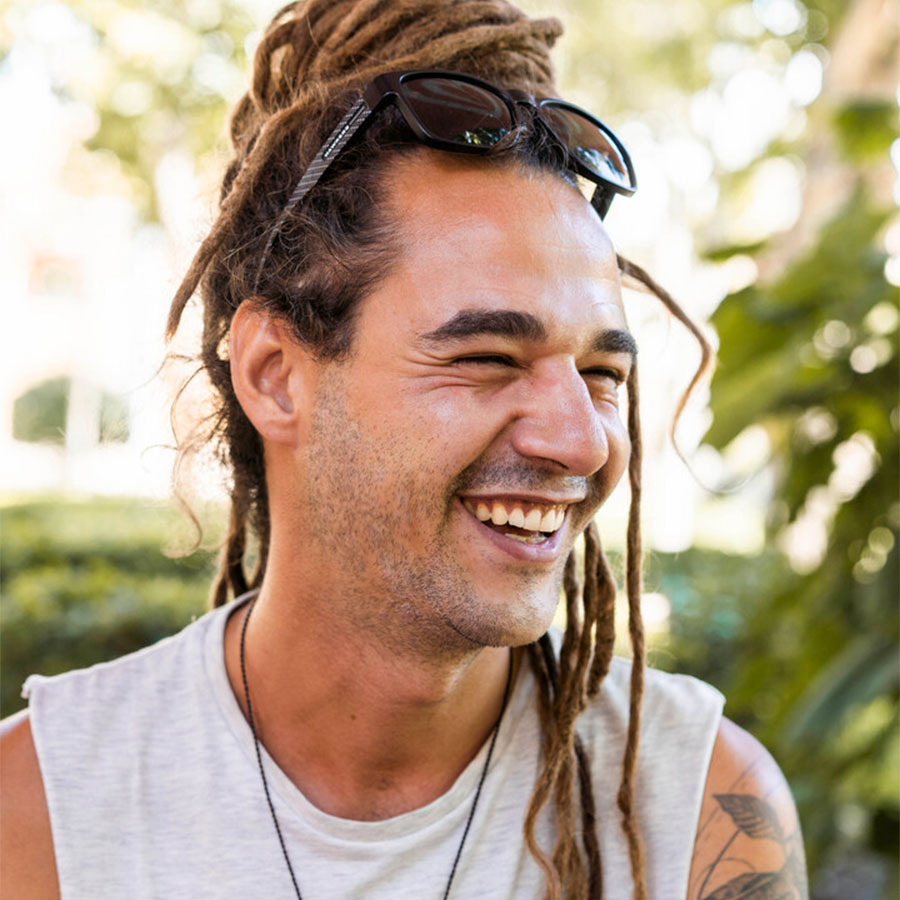What does Faro and this cultural environment and lifestyle allow you, that Brazil didn’t?
So back in Brazil, I didn’t have a place as an artist because in Brazil people don’t value art as it should be valued. So once I was in Europe, in Dublin (Ireland), or even here in Portugal, in Faro, people really value what I make. So if I make a necklace and ask for 100€, 120€, 150€. There is going to be a specific client that will pass by and that will embrace my project. Those people won’t ask for a discount or anything like that. They just know the value of it. So it’s something I found here. People are still not very well educated because of mass production like Taiwan, India, and also China for example. Those countries have been producing those things in mass. People just buy those products at very cheap prices and think they should also pay those kinds of prices in art, which is not the case because in art we place our creativity and our love.
And I found safety here in Europe as well. Of course it’s not 100 percent safe, but I know what it is really like to be in a ghetto, in a favela or even in places that you could call a gray area. Here we also have those areas, but it’s not like in Brazil for example, you don’t have to be afraid all the time. Of course I don’t lower my guard. I am always aware. My radar is always on, but I’m way more relaxed. Even in +other countries, for example, Cambodia, Singapore, India, Morocco, I felt even safer than I was feeling in Brazil. When I go back to Brazil, my radar goes crazy like: beep, beep, beep, beep, beep, beep, beep, beep, beep! And I really don’t like this feeling.
Can you talk a bit about the challenges, or the new perspectives of life your last travel to India brought you?
Going to India made me realize that I should be more grateful for what I have in life. Sometimes I complain about very silly things. In my house I live with three friends of mine, they’re like long-term friends. So we have a very good relationship. But sometimes I complain because someone didn’t do the dishes, or because there is dust on the floor. And then I was in India, and everything is so dirty, so dusty. And poverty and misery are so huge there. But among all of these hard things to see and to feel, there is so much beauty, they’re so rich as well. Culturally speaking they speak thousand dialects, over a hundred languages in the whole country. I mean, it’s not everybody that speaks all of them because it’s humanly maybe impossible. But it’s so colorful, so interesting, so chaotic, so crazy. First of all, I felt in a defensive position because it was a place I didn’t know anything about. I knew very little, just in order to arrive there and to not get scammed, which happens anyway because they have so many different ways of scam. But India was really like being in a hurricane and having to find like peace and silence in the middle of chaos, which was a big challenge.


